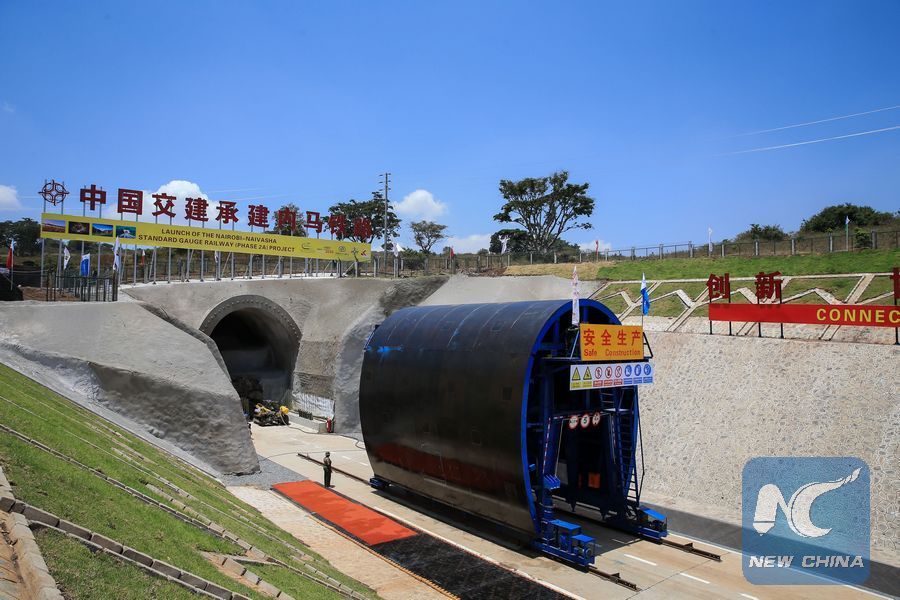
Photo taken on Oct. 19, 2016 shows a constructing site of the Nairobi-Naivasha Standard Gauge Railway (SGR) Project in Kajiado County, Kenya. (Xinhua/Pan Siwei)
NAIROBI, June 24 (Xinhua) -- Kenya said on Friday the extended Standard Gauge Railway (SGR) line which runs from Nairobi and Naivasha will start operations around mid 2019.
Paul Maringa, Principal Secretary for Transport and Infrastructure, said the Phase 2A of the Nairobi-Naivasha SGR line being constructed by the China Communications Construction Company (CCCC) is currently 70 percent complete.
"The SGR line is expected to help take modernity to the far flung parts of the southwestern Kenya by opening up the hinterlands," Maringa said this during the launch of the Kenya SGR Corporate Social Responsibility (CSR) report for the 2017/2018 period in Nairobi.
He noted that the line will hasten cargo flow and open up additional business opportunities for the people living in the region.
The Chinese firm has hired a wide range of professionals ranging from engineers and laboratory technicians to heavy equipment operators and human resource personnel to undertake the project which is one of Kenya's Vision 2030 flagship projects that will play an important role in improving the transport system in the country.
"The relationship is credited for enabling 100 students to acquire scholarship at a Chinese university to study engineering and railways related courses," he added.
He thanked the Chinese firm for their role in helping transform and develop the country through its CSR.
He noted that Kenya is keenly investing the SGR as part of the Belt and Road Initiative and the country's Vision 2030.
Sun Baohong, the Chinese Ambassador to Kenya, said Sino-Kenyan cooperation is a win-win relationship that provides opportunities for both the citizens of the two countries.
Lu Shan, chairman of China Road and Bridge Corporation (CRBC), said that his company is keenly promoting technology transfer by training Kenyans to take over the management of the SGR and other projects when complete.
"We are supporting trainees by offering scholarships to come back and sustain the projects that we are putting in place currently," Lu added.
He said that the firm's support to communities through CSR will increase depending on the diversity of the projects being undertaken.
"We have set aside some 0.5 percent of the contract amount to fund the CSR programs to help support communities within which the projects are located," he revealed.
Lu noted that the SGR has injected strong momentum for social and economic development by bringing real benefits to Kenyan people, generating 72,000 local jobs since the Mombasa-Nairobi part of SGR started construction in late 2014.
"The SGR has contributed 1.5 percent of Kenya's Gross Domestic Product (GDP) and reduced logistic costs by 40 percent," Lu noted.

